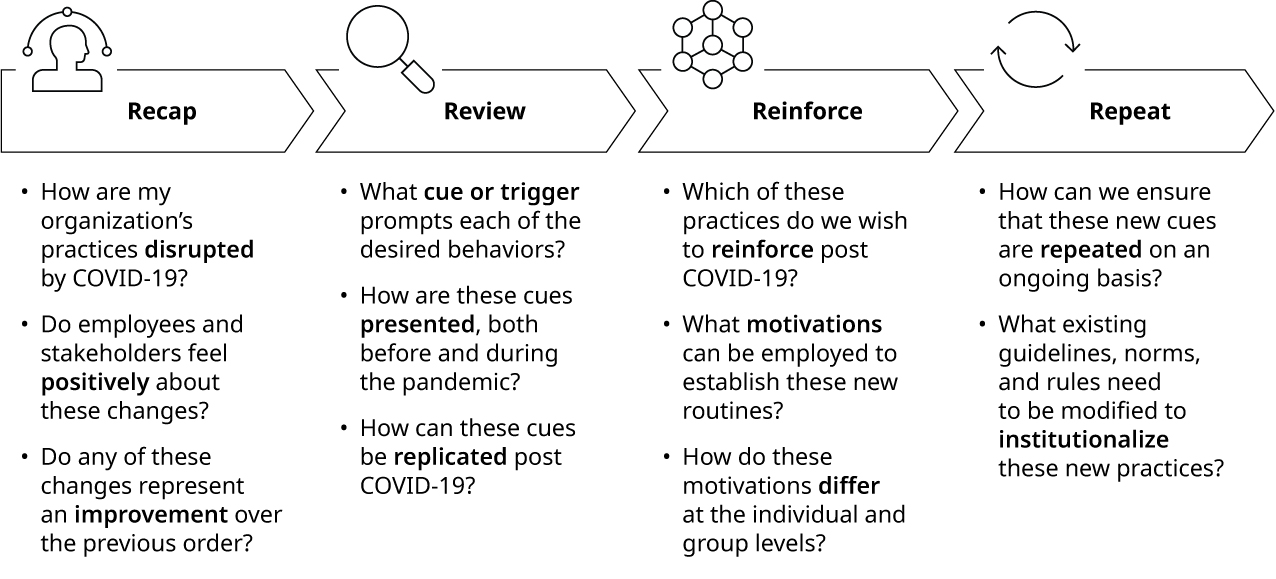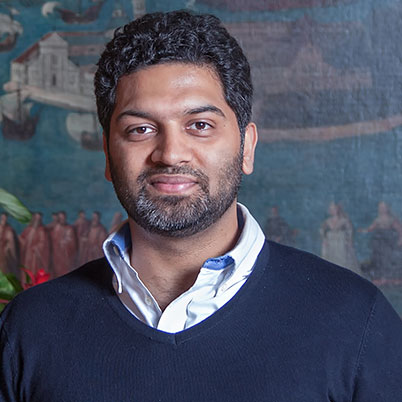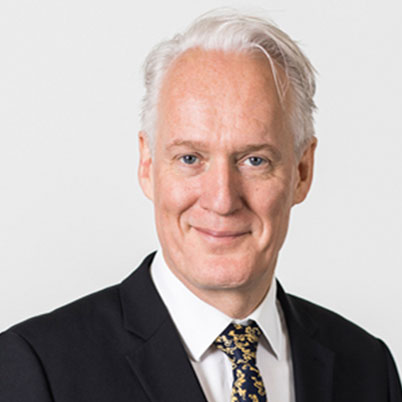This was first published on July 5, 2020.
The COVID-19 pandemic is changing life as we know it. There are few, if any, aspects of day-to-day life - how we socialize, travel, and work - that have not in some way been altered for good or the foreseeable future. The disruption brought about by the pandemic also offers a unique opportunity for organizations to re-calibrate routines and ways of working. From virtual conferencing, to shifting business models online, many positive new activities have emerged. As consumers and employees return to their previous ways of life, they are making conscious decisions every day about whether to embrace tenuous new habits that were formed under lockdown conditions, or to return to the previous well-established work patterns.
For organizations that saw significant disruption during COVID-19 lockdowns, every day that passes without a concerted effort to acknowledge, assess and activate new practices and routines represents a risk of lost opportunity, along with the likelihood that many of these new ways of working will themselves lapse if we do not actively shape the post-COVID environment that we are starting to enter.
In this paper, we describe how these new practices can be embedded relatively quickly if repeated in a consistent context, as part of a consistent routine, in response to a recurring trigger. Once these practices become embedded, they can be difficult — and in some cases, nearly impossible — to break. We also set out how organizations can actively support the ‘new normal’ by setting out a framework that enables us to both identify the positive new working practices we want to maintain and lay the foundations for their continuation.







